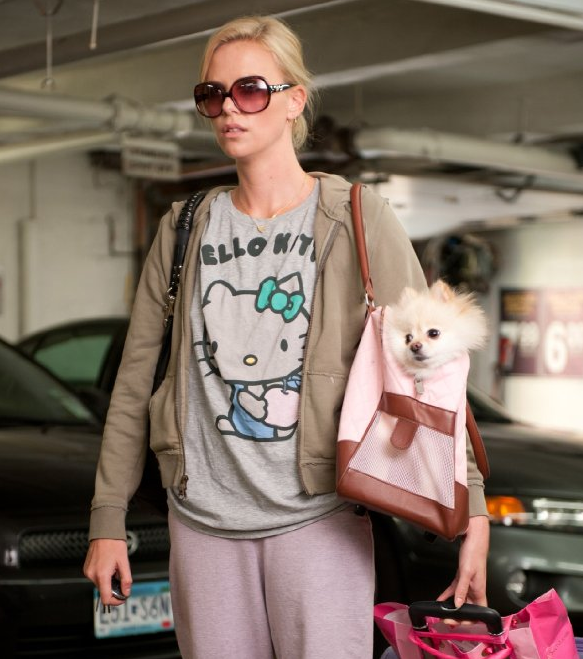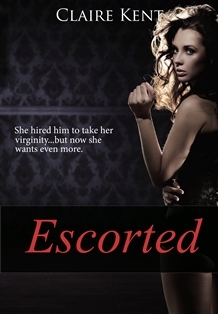A guest post from Shelley Ann Clark
Hey, Cara here. I asked Shelley to post for us here at Wonkomance, thinking it’d be great to get a librarian’s perspective on the genre. And also because she’s hilarious and adorable, and seems to have an uncanny talent for attracting strangers’ bodily excretions. I absolutely love the post she came back with, touching on her library’s underprivileged readers and their desire not necessarily for escapism, but realism. Without further ado…Shelley!
“My patrons see plenty of windows. I’m sure that sometimes they see enough windows that they wonder why they’re still standing outside in the cold.”
“My readers want an HEA, but they want gritty realism too. Stories about women working hard to get an education, the draw of a bad boy and how his choices have serious consequences—these are the themes my patrons love.”
Public libraries are wonky places.
It doesn’t matter if the library is a new suburban building, filled top-to-toe with shiny technology and a beautiful, endless book collection stretching as far as the eye can see; or if it’s a ten-storey marble-lobbied temple to literacy in a city’s downtown; or if it’s the building where I currently work, where the radiators leak, the boiler sometimes explodes, and the circulation staff has to hold umbrellas when it rains– libraries attract the studious, the ignorant, the sane, the not-so-sane, and, most certainly, the wonky.
My first library memory is of the hushed, cool, book-scented children’s area of my small hometown’s public library, where my mother would leave me to select books while she went upstairs to the adult department. The librarians gave me recommendations and bent the official-by-policy rule of only allowing children over twelve to check out books from the adult department after I read nearly every book in that basement by the time I was 9. I’d load up my tote bag with as many books as I could carry, especially in the summer, when my mother (a teacher who had summers free) and I would visit twice a week. “She’ll be a librarian one day!” the librarians would crow. But while they were awfully nice ladies, the job didn’t seem very exciting. I was usually the only patron in the children’s department. Librarianship seemed like a job for people who liked to sit in quiet rooms, alone, all day long.
But when I fell into a job as a children’s librarian’s assistant while in college, thanks to an abundant knowledge of children’s literature born in those basement forays of my childhood summers, I learned my first day on the job that public librarianship is about, well, the public first and foremost, and the public, as it turns out, is bizarre and fascinating.
There was no quiet hush in that beautifully maintained suburban library building, ever. My first reference question was helping a university student who spoke almost no English find directions to Wyoming (we were east of the Mississippi River and south of the Ohio). My second, taken over the phone, was a request to look up the world record for the number of gallstones removed from a living patient, because, as the patron on the end of the line told me, her doctor had just performed gallbladder surgery on her and thought she might qualify to break the record. My butt didn’t hit the chair behind the reference desk for more than two minutes at a time that first night at work.
I was hooked.
“Father’s Day is when I get the most requests for inmate photos from the IDOC site from kids who want to see their dads.”
Since that day, I’ve moved to a large city, where I’ve worked at the main library, at a branch in a wealthy neighborhood, and at my current branch, where the windows are built with bullet-proof glass and the light fixture in the entryway was stolen for its copper. I’ve cleaned up all manner of bodily fluids, more from adults than from children; I’ve walked one of our regulars out the front door and gotten him coffee after he was so intoxicated he fell out of his chair. I know how to recognize a heroin nod and a psychotic episode; I am at least as familiar with the Illinois Department of Corrections offender search page as I am with JSTOR. Father’s Day is when I get the most requests for inmate photos from the IDOC site from kids who want to see their dads. My heart breaks and re-forms itself again at that knowledge, which is both incredibly sad and incredibly hopeful.
Because, of course, people are messy and life is complicated. It’s messy and complicated everywhere, even in the wealthiest and most privileged of neighborhoods, but where I work now, it’s often made messier and more complicated by a variety of factors—institutionalized racism, poverty, food insecurity, an overstretched and underfunded social service net.
I have worked at libraries with extremely high circulation; I currently work at a library with extremely low circulation. Patrons at my library read. They sometimes sit in the library for hours at a time, absorbed in books. Frequently, our patrons will hide books they like particularly well, so that no one else will check them out until they can come back to finish them. This kind of in-library use isn’t because our branch is such a beautiful and pleasant place; after all, our boiler may or may not be working on any given day, and our carpet, which was installed in 1979, is held to the floor with electrical tape. It’s because one late fine or lost item is enough to create a permanent impediment for many of our patrons to ever actually checking out books, and yet, they come anyway.
And that’s the beauty and wonder of our world, isn’t it? Despite the impediments, there is hope and light. People fall in love, they search for meaning, they care for their neighbors. Jim*, one of my regulars who lives down the street at the Y, waits every morning on the library steps for me to arrive to open the branch. He tells me I need to stop drinking so much coffee, that it’s bad for my health. I tell him he ought to quit smoking. His life is, in nearly every way, harder than mine, but he tells me he worries when I leave the library late at night.
There’s been a great deal written this year about romance as an escape. I can’t help but picture an overwhelmed suburban mom, trying to work full-time, take the kids to soccer and Scouts, and keep up with the increasing demands of her household, when I hear that argument. To be sure, if anyone deserved to seek escape, it would be my patrons. Waiting in line for five hours every Wednesday at the food pantry, only to be turned away because the crowd attacked the priest handing out the food; being three months behind on rent and wondering how long you have before you’ll be evicted; working five twelve-hour shifts in a row, and then finding out your car won’t start—these are all circumstances patrons have told me about in the past month.
And yet, my patrons don’t, as a general rule, read to escape. When I talk to them about what they read and why, the most common answer I get is, “I like it because it’s real.” Our Urban Fiction section is always empty, the books checked out by those who have library cards, in use every hour the library is open by those who don’t, or stashed somewhere in the stacks by those who want to save their spot for next time (I always feel a little guilty re-shelving someone’s hidden treasure when I come across them). My patrons also love romance—not the bright, shiny romance novels with virginal heroines and perfect, wealthy heroes, though.
Librarians often talk about “readers’ rights.” One of those that I feel most strongly about is the right of every reader to access books that serve as both windows and mirrors. Readers should have the chance to read about characters like themselves, who face challenges like theirs, as well as the chance to learn about other worlds and lives. My patrons see plenty of windows. I’m sure that sometimes they see enough windows that they wonder why they’re still standing outside in the cold.
Wonkomances provide my readers with mirrors. There are definite issues of access, since so many of the books I know my readers would love are only available in e-formats, and the digital divide where I work is slightly larger than the Grand Canyon. But the fact that these books are being written at all is the first step. Despite the impediments, writers and publishers are producing books that show that people like my patrons, and people like me, deserve love and happily-ever-afters. Books that show that, despite the impediments, love and community are as much a part of our human condition as suffering. And despite the impediments of building conditions, decimated budgets, and pitifully low staffing, I’ll keep trying to find ways to hold those mirrors up to the community where I work to reflect back at least a little of the hope and beauty I find here.
*Note: patron names and identifying information have been changed because, as a librarian, I value and respect my patron’s right to privacy.
A few of the books my patrons love:
 Upstate isn’t a romance—be warned, there’s no HEA for this one. But it is an enduring love story, a coming-of-age tale, and an epistolary novel about two teens in Harlem, life in prison, and hope in the hardest of circumstances. It’s also incredibly lyrical and beautifully written, and I can’t keep it on the shelf at my branch—partly because I recommend it to everyone who walks in.
Upstate isn’t a romance—be warned, there’s no HEA for this one. But it is an enduring love story, a coming-of-age tale, and an epistolary novel about two teens in Harlem, life in prison, and hope in the hardest of circumstances. It’s also incredibly lyrical and beautifully written, and I can’t keep it on the shelf at my branch—partly because I recommend it to everyone who walks in.
 The readers at my branch can’t get enough Wahida Clark. Not all of her books have happy endings, and that’s a complaint my readers have—they want an HEA, but they want gritty realism too. Stories about women working hard to get an education, the draw of a bad boy and how his choices have serious consequences—these are the themes my patrons love.
The readers at my branch can’t get enough Wahida Clark. Not all of her books have happy endings, and that’s a complaint my readers have—they want an HEA, but they want gritty realism too. Stories about women working hard to get an education, the draw of a bad boy and how his choices have serious consequences—these are the themes my patrons love.
Ni-Ni Simone is requested by teens and adults alike for fast-paced, romantic-drama-filled stories about young women finding their identities.
Shelley Ann Clark’s third-grade teacher told her she would grow up to be the next Danielle Steel. It probably says something about her that, at age eight, she knew who that was and thought it was a compliment. Shelley now holds an MA in Creative Writing, a Masters of Library and Information Science, and has worked in public libraries for twelve years. She lives with her husband in Chicago, where she writes about Southern men and the women who bring them to their knees.


 Perhaps a month ago, I watched
Perhaps a month ago, I watched 




















